These 27 Women Are Leading the Charge to Protect Our Environment

Scientists have called our current, climate change–threatened era the Anthropocene, but as the eco-economist Kate Raworth once joked, women are left out of the narrative so often that it sometimes feels like the Manthropocene. Presenting 27 standouts who prove that women are leading the charge to protect our environment and our future.

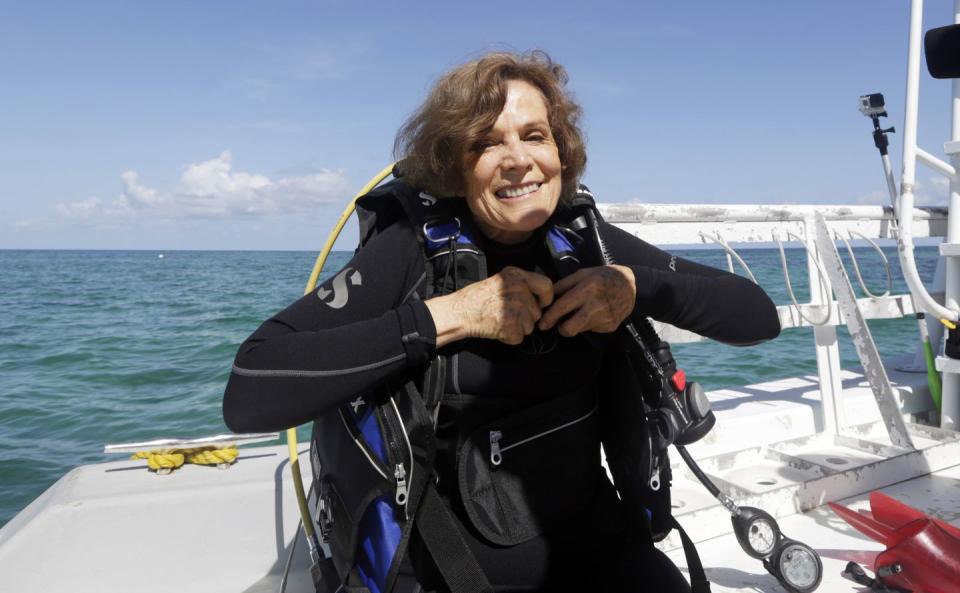
Sylvia Earle, PhD
Dubbed “Her Deepness” by the New Yorker in 1989, marine biologist Earle is one of the ocean’s fiercest advocates. At 83, she’s logged more than 6,000 hours underwater and doesn’t show signs of hanging up her wet suit anytime soon. Her astonishing career, which includes authoring over 200 publications and serving as the first female chief scientist of the National Oceanic and Atmospheric Administration (NOAA), isthe subject of the Ne lix documentary Mission Blue. The lm takes its name from her nonprofit organization, the Sylvia Earle Alliance (S.E.A.)/ Mission Blue, which establishes marine protected areas called Hope Spots around the world. Currently less than 6 percent of the oceanis protected, but Earle and her team hope to bring that number to 30 percent by 2030. Who better than Her Deepness to make that happen?

Emily Pidgeon, PhD
The Australia native has called herself a “blunt object” because of her drive to make change. As senior director of the oceans and climate program at Conservation International, Pidgeon helped lead the formation of the Blue Carbon Initiative, an international nonprofit that works to mitigate climate change by protecting and restoring coastal ecosystems.

Jenna Jambeck, PhD
Clearing plastic pollution from the ocean? There’s an app for that. Jambeck, an associate professor at the University of Florida College of Engineering, co-created Marine Debris Tracker, which lets users report seaside litter anywhere in the world. (Think Citizen, but for the beach.) Since the app’s 2010 introduction, thousands of people have kept one million pieces of trash from hitting the waves. Jambeck has also published research that’s proved integral to understanding what we’re up against: Her 2010 study found that between 4.8 and 12.7 million metric tons of plastic entered the world’s oceans that year.
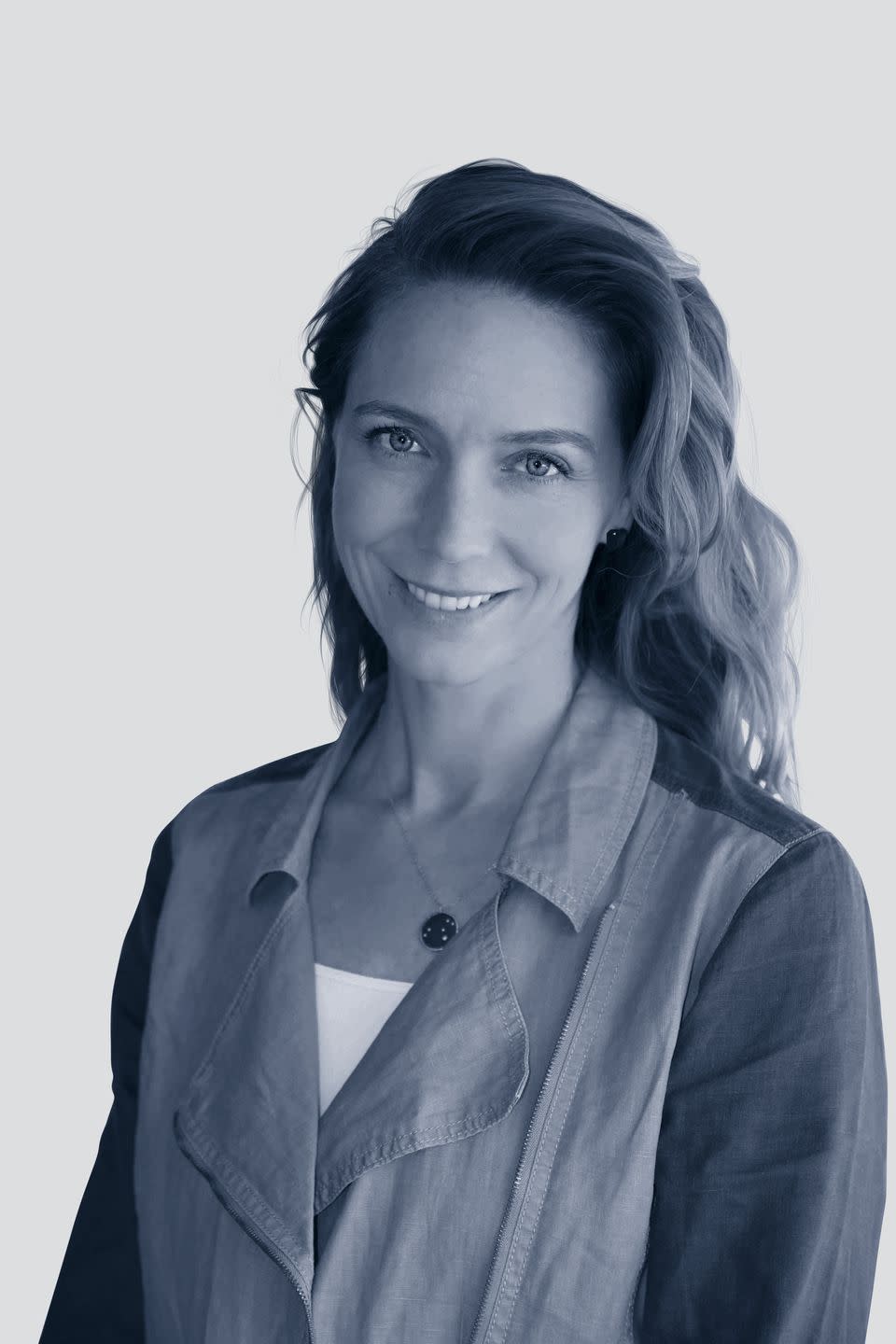
Kim Cobb, PhD
Twitter is more commonly home to clapbacks and political clashes, but for Cobb, a professor of earth and atmospheric sciences at Georgia Institute of Technology, it’s a way to let people into her underwater world. Using her handle @coralsncaves, sheaims to demystify her research, which probes-what else?- corals and cave stalagmites for insight into climate change.
Ayana Elizabeth Johnson, PhD

Johnson, a Harvard and Scripps Institution–educated marine biologist, is the founder and CEO of Ocean Collectiv, which supports businesses and agencies concerned with the oceans. She staffed the Collectiv with a dream team of ocean experts and aims to build upon the work she did at DC’s Wai Institute to zone one-third of the Caribbean island of Barbuda’s coastal waters as marine preserves. Johnson’s coalition organizes programming, encourages community involvement, and conducts research, all with a social justice bent.
Heidi Cullen, PhD

If Cullen looks familiar, that may be because she spent nearly five years on television as the Weather Channel’s climate expert. “I am a scientist by training, and I’ve become a journalist by default,” said Cullen at the time of her cable TV stint. These days, the Columbia University PhD holds two directorships at California’s Monterey Bay Aquarium Research Institute (communicationsand strategic initiatives, and information and technology dissemination), and she previously served as chief scientist of Climate Central, a nonprofit science journalism organization focusing on the science and impacts of climate change, which she helped found in 2008.

Katherine Hayhoe, PhD
Hayhoe, an atmospheric scientist and director of the Climate Science Center at Texas Tech University, has made it her mission to prove that science and religion can work together in a way that doesn’t leave Mother Earth (or faith) in the dust. An evangelical Christian, Hayhoe writes and produces a PBS digital series called Global Weirding: Climate, Politics, and Religion, which breaks down environmental science into easy, digestible episodes. She’s also the founder and CEO of Atmos Research, a consulting and research rm that connects scientists with government agencies, nonprofits, and other industries to manage their interests in the face of climate change.

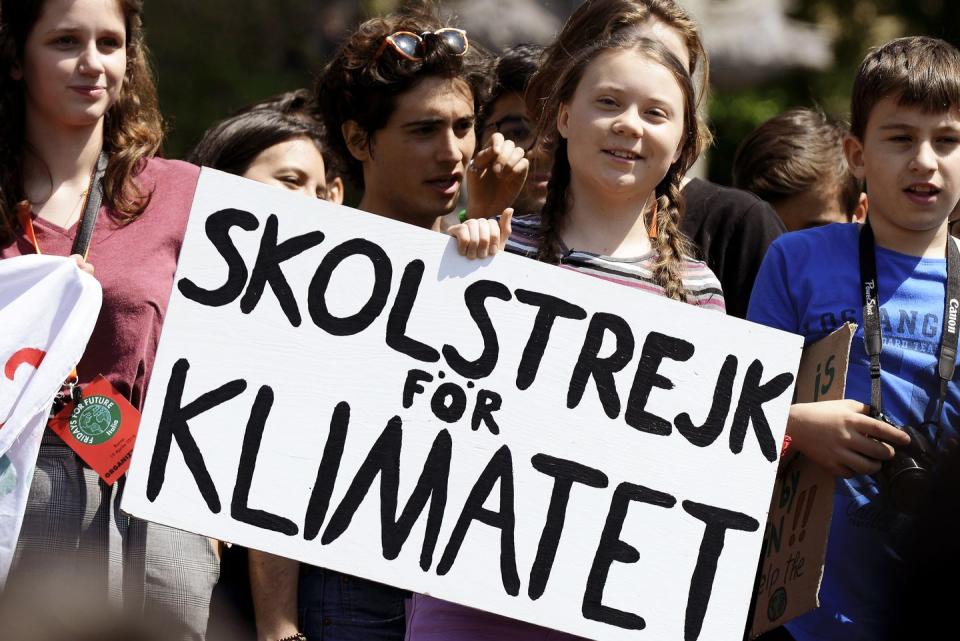
Greta Thunberg
She started as just one girl, sitting outside the Swedish parliament to protest government passivity on climate change. Since then, Thunberg’s become the conscience of a movement. The 16-year-old Swede inspired students worldwide to strike on March 15, confronted the world’s elite during the World Economic Forum at Davos, and has been nominated for the Nobel Peace Prize. When British PM Theresa May complained that the striking students were wasting lesson time, Thunberg fired back in a tweet: “Political leaders have wasted 30 years of inaction.”
Varshini Prakash
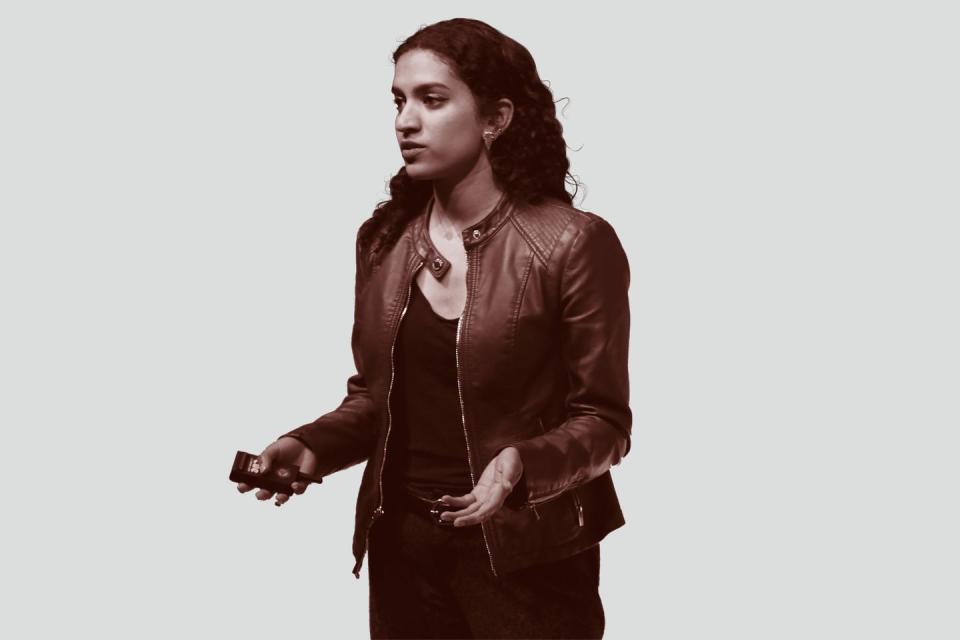
You might have heard about the Sunrise Movement when its members occupied Speaker of the House Nancy Pelosi’s office (they were joined in the actionby Rep. Alexandria Ocasio- Cortez). Or maybe they entered your consciousness after their caught-on-video confrontation with Senator Dianne Feinstein. Prakash is the cofounder and executive director of the movement, which has put pressureon politicians to supportthe Green New Deal andto be more progressiveon climate initiatives.
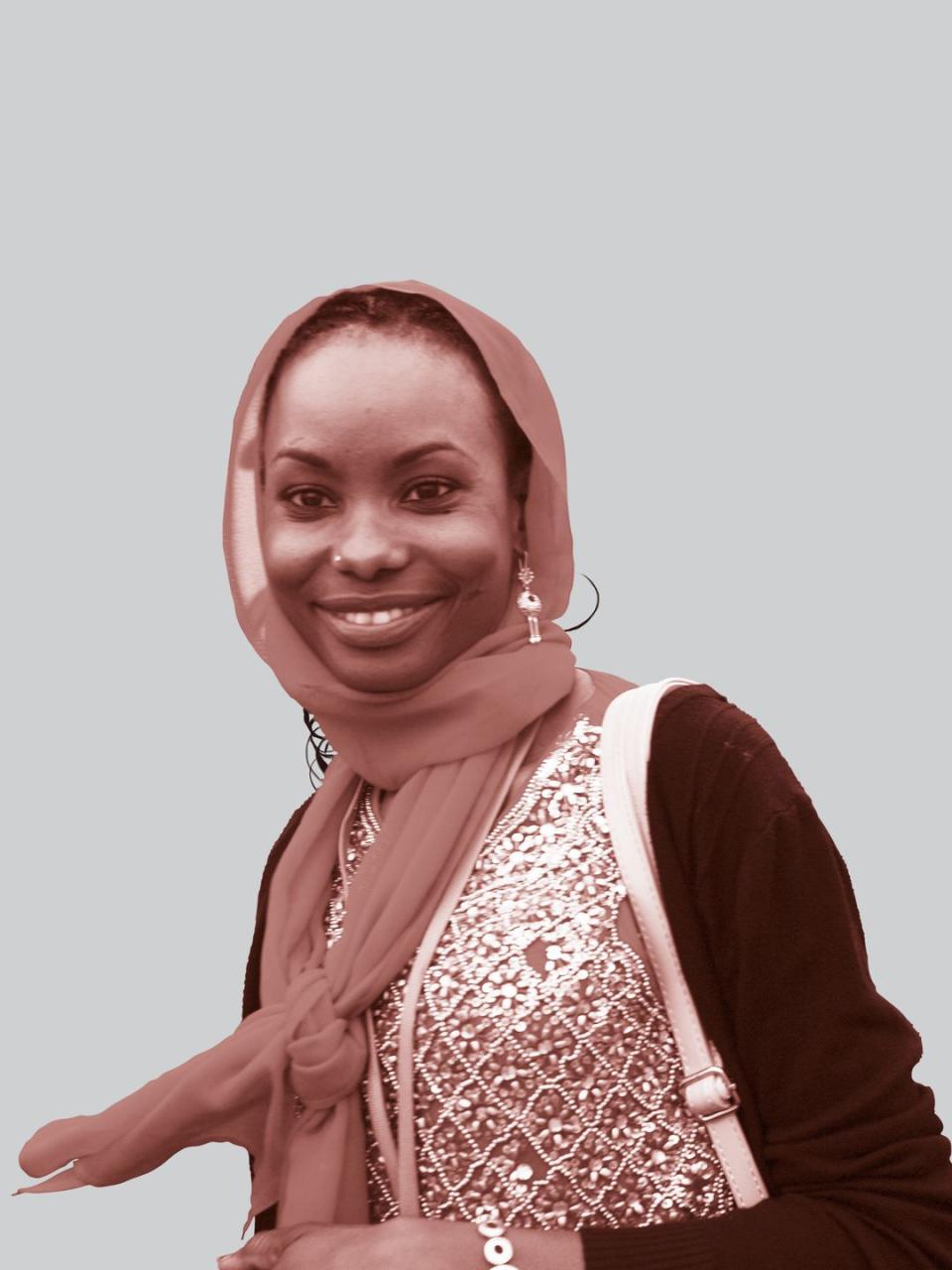
Hindou Oumarou Ibrahim
When we think about how to combat climate change,we usually look to the future. Ibrahim is making a casefor tradition. Growing up in Chad’s nomadic Mbororo community of ca le herders, she observed how her fellow citizens found ways to adapt to a changing environment. She co-created a 3-D mapping project to give them a voice; elders offer their insightson how to protect specific areas of the landscape. Think of it as oral history 2.0.
Kelsey Juliana

Brown v. Board of Education. Roe v. Wade. Loving v. Virginia. Kelsey Juliana, a 23-year-old student, has lent her name to a case, Juliana v. United States, that could turn out to be justas central to the American landscape as these judicial milestones. Filed in 2015 on behalf of 21 plaintiffs including Juliana, with the support of Our Children’s Trust, the lawsuit contends that the government’s use of fossil fuels violates their constitutional rights. The case is being heard this summer by the Ninth Circuit Court of Appeals.

Isra Hirsi
Controversial congresswoman Ilhan Omar isn’t the only headline-maker in her family. Her 16-year-old daughter,Isra Hirsi, has entered the news cycle as one of the U.S. leaders of the Youth Climate Strike, alongside fellow Gen Z–ers Haven Coleman and Alexandria Villaseñor. The three organized the U.S. portion of the school walkout on March 15. Hirsi has been particularly vocal about the ways inwhich climate intersectswith social justice issues (“Is your activism intersectional?” her Twitter bio reads).

Shailene Woodley
Hollywood activism sometimes gets a bad rap, but Woodleyis the real deal-with themug shot to prove it. When she protested against the Dakota Access Pipeline in 2016, the actress live-streamed her arrest to her Facebook followers. The two-hour video garnered over 5 million views and drew attention to the cause. Last year, she landeda new role, playing the voiceof the forest in Conservation International’s latest NatureIs Speaking lm, Forest.

Nicole Horseherder
As executive director of the organization Tó Nizhóní Ání, which translates to “Sacred Water Speaks” in Navajo, Horseherder is fighting on behalf of the environmentand her own people in the Black Mesa region of Arizona. She and her group recently helped draft a bill that would move the Navajo Nation from reliance on coal to 100 percent renewable energy sources.


Lisa Jackson
Jackson’s background may be in politics, but given the current administration’s lack of focus on the environment, she’s proving that working in the private sector might actually be more impactful. As EPA chief during Obama’s first term, Jackson fought to reduce greenhouse gases, improveair and water quality, and mobilize communities to think green. Since then, she’s taken her talents to Apple, where she’s the VP of environment, policy, and social initiatives. Last fall, CEO Tim Cook passed the mic to her at the company’s annual keynote (the one where they reveal the new products we’ll all be clamoring for). She reminded the crowd of journalists and tech nerds that Apple’s operations now run on 100 percent renewable energy worldwide. She also reinstated the company’s commitment to using more recycledor renewable materials in the years ahead-already, some components of the iPhone XS are made from recycled tin and plastic. Plus, thanks to Jackson, the brand has nearly eliminated plastics from its packaging.
Kate Brandt
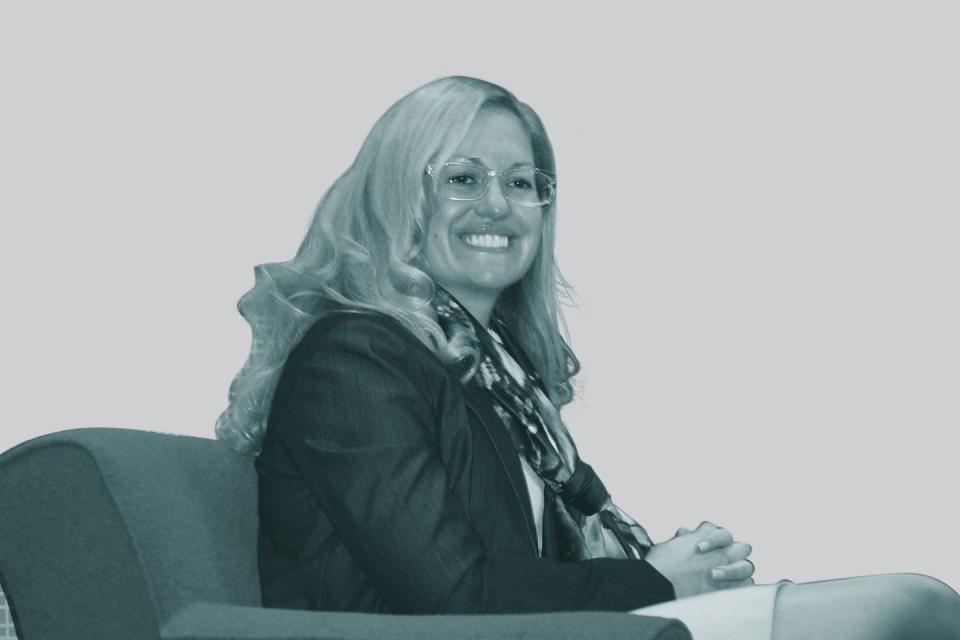
Brandt was the U.S.’s first-ever federal chief sustainability officer and helped reduce the government’s carbon footprint across 360,000 buildings and 650,000 vehicles. But her current position as Google’s sustainability officer is perhaps even more challenging. Under her watch, Google offset100 percent of its energy consumption by 2017; this year, she introduced “Your Plan, Your Planet,” an interactive action plan to help consumers reduce food, water, and energy waste.
Jeanny Yao and Miranda Wang
The depressing truth: Only 9 percent of plastic gets recycled worldwide. As the founders of BioCellection, a biotech platform that upcycles plastic, Yao and Wang are out to change that statistic.

Their technology uses genetically engineered bacteria to transform mixed and contaminated plastics, which are mostly unrecyclable, into virgin-quality chemicals that can then be reused. Their efforts have already saved 10,000 plastic bags from ending up in oceans and landfills.

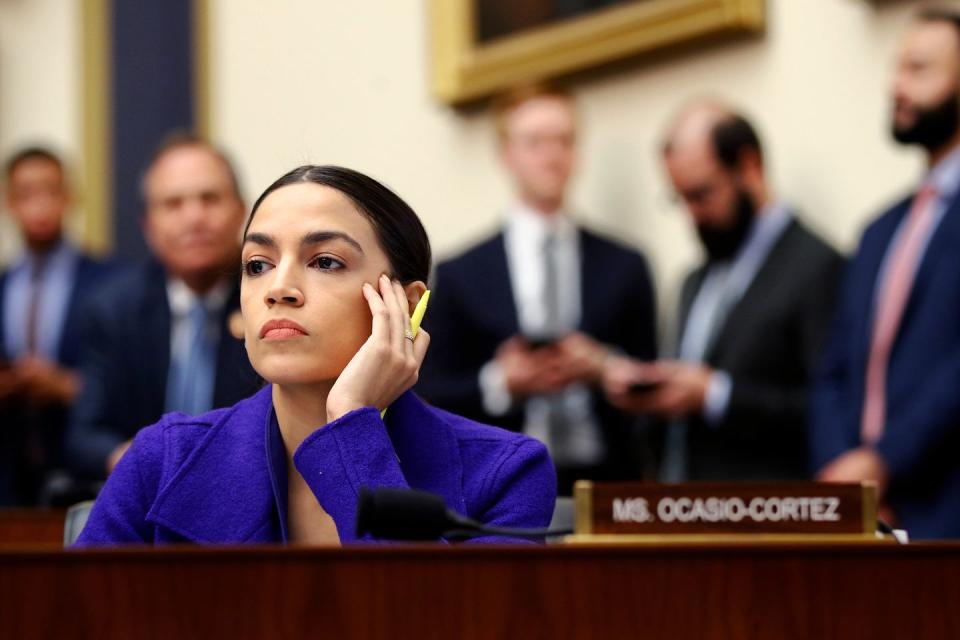
Rep. Alexandria Ocasio-Cortez
In February, rock-star House rookie AOC, along with Senator Ed Markey, submitted the most sweeping climate change resolution yet-the Green New Deal, which, if passed, would lay the groundwork for programs to reduce carbon emissions and boost the economy. The fine print: The legislation aims for the U.S. to transition from relying on fossil fuels and ultimately meet 100 percent of its power demand through clean, renewable, and zero-emission sources. “[Climate change] is not an elitist issue; it’s a quality of life issue,”
Ocasio-Cortez said at a House Financial Services Committee meeting in March. The speech, like most things she does these days, went viral-a after all, even the lipstick she wore on last year’s Democratic primary night sold out online-and further solidified her status as her generation’s leader toward a greener future.
Rep. Jahana Hayes and Rep. Ayanna Pressley

Freshman congresswomen Hayes and Pressley are vocal supporters and cosponsors of the Green New Deal. Which is not to say that Hayes’s support didn’t garner criticism. When the Connecticut rep announced her stance in February, an attack ad followedin April, to which she responded, “I’m not at all concerned.” Pressley, who once proposed loweringthe federal election voting age to 16 so that engaged youth could vote for causes that will affect them the most, emphasizes the intersectionality of climate change.

She says that when it comes to rising temperatures and erratic weather patterns, public health, human migration, and national security are all at stake-and she’s not shy about speaking up about it.
Rep. Barbara Lee and Sen. Mazie Hirono
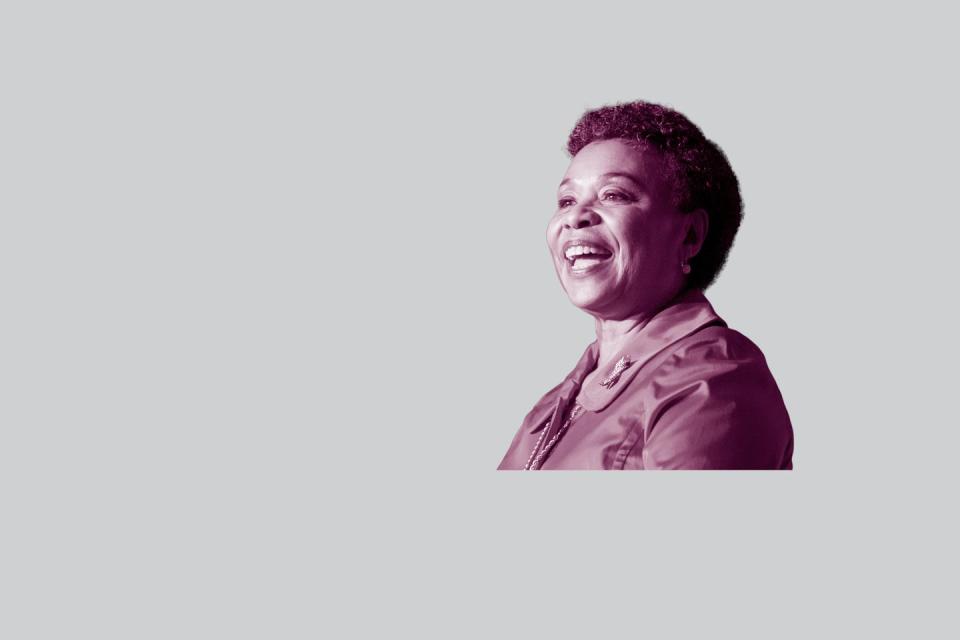
As climate change continues to threaten our ecosystems, women stand to lose more than men, say Lee and Hirono, the coauthors of the Women and Climate Change Act, which was introduced to the Senate in March. The bill addresses conservation’s gender gap, arguing that the world’s poorest will feel the effects the most, and the majority of that group is female.
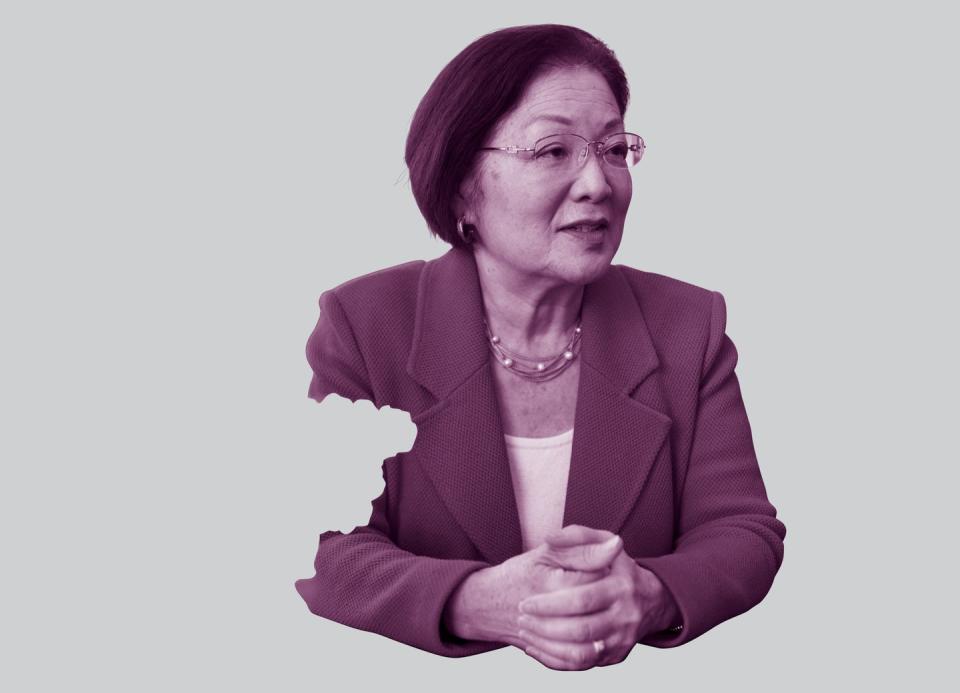
Planned Parenthood, the Sierra Club,and the Women’s Environment & Development Organization have already lent their support to the bill; if passed, it would establish a Federal Interagency Working Group on Women and Climate Change, which would be a major win for female leaders (and constituents) everywhere.


Jennifer Morris
Currently the president of Conservation International, Morris first joined the organization in 1998 as its Wild Harvest Products manager, following a stint at Women’s World Banking. Noting that the eco-battle cannot be fought via charity alone, she’s used her background in microfinance to create new investment mechanismsthat ensure long-term financing for the protection of the planet. During her tenure at Conservation International, Morris has led such influential investment initiatives as the Center for Environmental Leadership in Business and the Global Conservation Fund, which has enabled the protection of nearly 200 million acres globally.
Xin (Lucia) Liu
At just 27, Liu is the youngest board director of the Societyof Entrepreneurs and Ecology Foundation (SEE), the first social organization in China that promotes member engagement in conservation ecology to combat the nation’s pollution problems.

(To be fair, China’s recent efforts have been strong: It currently leads the world in electric vehicle sales and outpaces the U.S. in solar panel sales.) When she’s not making the rounds at UN summits and getting her photo snapped with Al Gore, Liu serves as chair of SEE’s Chongqing Project Center, which aims to protect and restore the middle and upper reaches of the Yangtze River in Chongqing. SEE has already helped fund four local NGO projects, all focused on conservation.
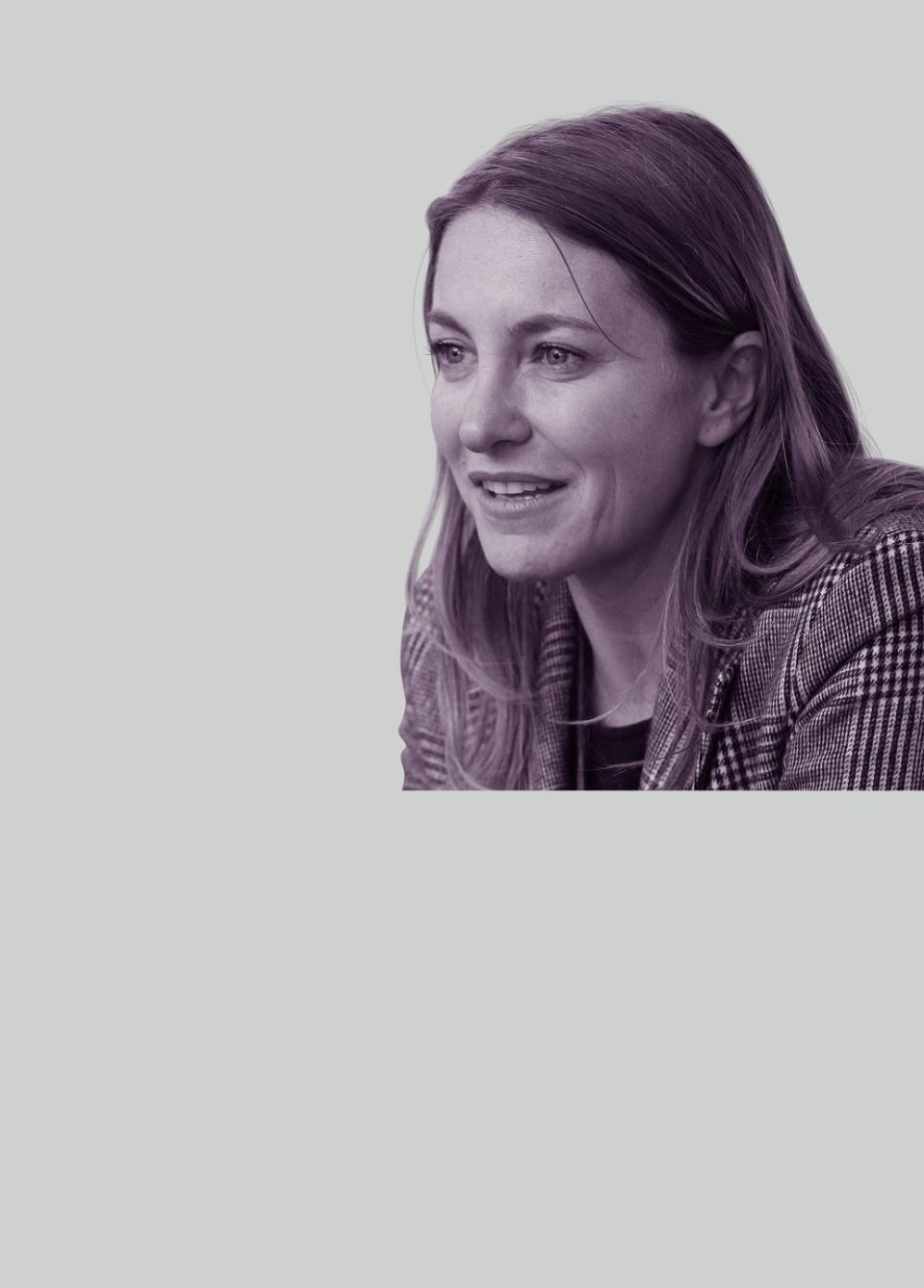
Sandra Bessudo
A French Colombian marine biologist and diver, Bessudo founded the Malpelo Foundation in 1999 to help protect Colombia’s marine environments, including the Malpelo marine sanctuary off the Pacific coast, home to thousands of at-risk deepwater sharks and other marine animals. Thanks to Bessudo’s work, UNESCO declared the area a World Heritage Site in 2006. She has also acted as the high presidential counselor for environmental management, biodiversity, water, and climate change, representing the nation at international sustainability forums and ensuring that ocean wildlife has a safe harbor.
Christiana Figures
With both a father and a brother who have served as president of Costa Rica and an ambassador mother, it seems inevitable that Figueres would find her way into public policy.
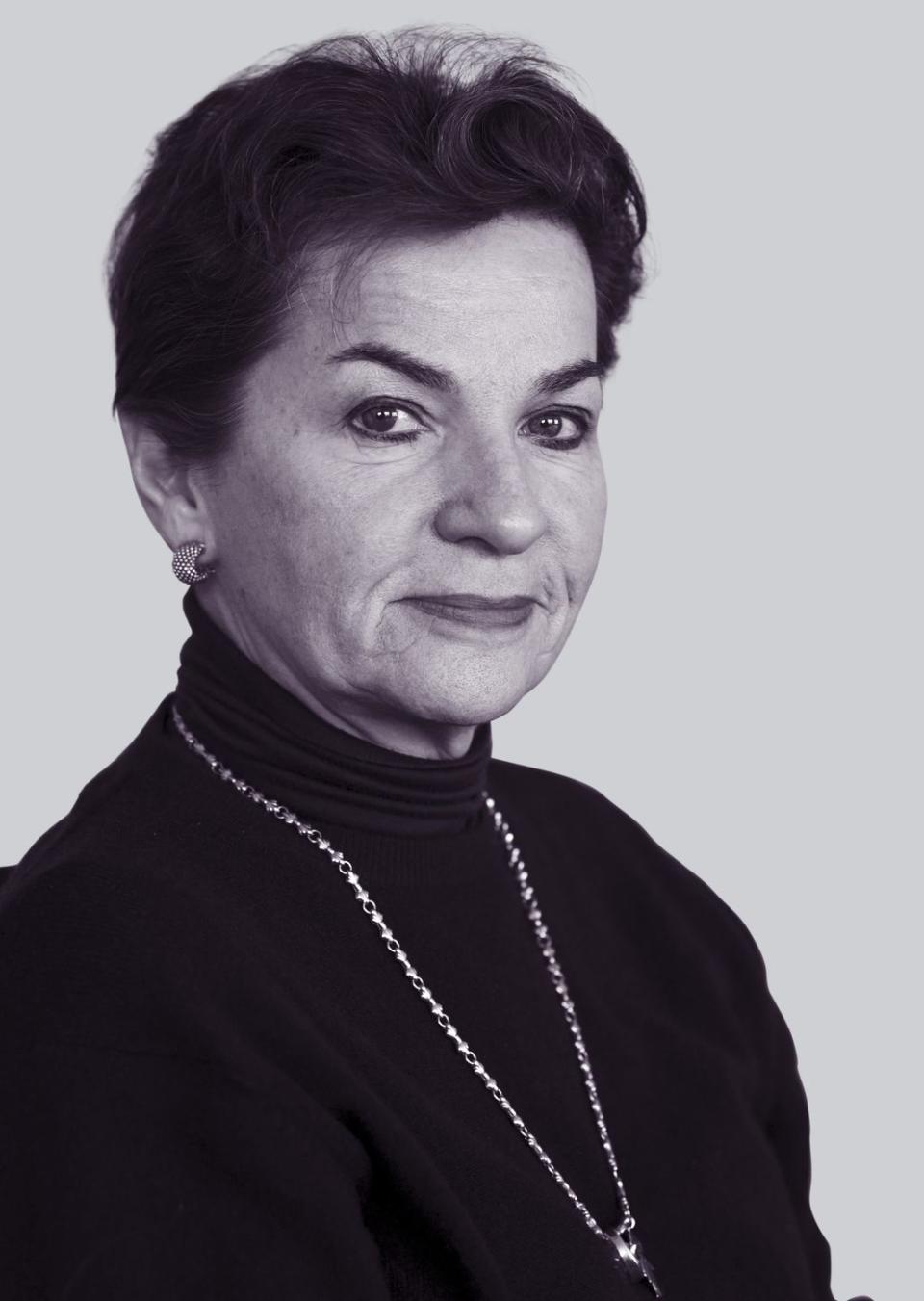
Over the last three decades, she has done everything from serving on the boards of ClimateWorks and World Resources Institute to accelerating the use of renewable energy throughout the Americas, both as director of REIA’s Renewable Energy in the Americas and as executive secretary of the United Nations Framework Convention on Climate Change. Currently, Figueres is the convener of Mission 2020, which is working to bend the curve of global greenhouse gas emissions by 2020.

This article originally appeared in the July 2019 issue of ELLE.
('You Might Also Like',)

